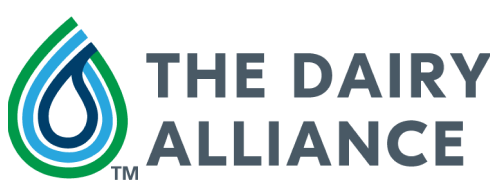How Dairy Foods Can Support Postpartum Moms
Quality nutrition is important during lactation to ensure that the mother is consuming enough calories to maintain her breastmilk supply that the baby is relying on her for growth and fetal development. Consuming nutritionally dense foods with the necessary vitamins and minerals can encourage the healthy brain and muscular development of the baby while also replenishing the depleted nutrient stores of the mother.
Nutrients Necessary for Lactation
For the first time, The Dietary Guidelines for Americans resource included nutrition recommendations for infants and toddlers through 24 months old, pregnant, and lactating mothers. Calorie needs are nuanced depending on the mother’s weight status and health goals, but the general recommendations are as follows: If mom is breastfeeding, her calorie needs increase (from resting metabolic rate) by approximately 330 calories in the first 6 months, which accounts for weight loss for the mother. If the mother’s weight has returned to the desired weight at 6 months and she is still nursing calorie needs for her should increase by 400 (from resting rate) while the baby is 6-12 months (1). Protein needs can also vary. The Dietary Guidelines for Americans recommends breastfeeding mothers to at least consume 5-7oz of protein per day in the form of fish, meat, poultry, eggs, nuts, and soy (1). Keep in mind that if she is eating a varied diet with whole grains, beans, dairy, and fruits and vegetables, she is likely consuming more than just 5-7oz of protein to fulfill her needs.
Special nutrients of concern during lactation include calcium, vitamin D, potassium, fiber, iodine, and choline. Iron and folate needs decrease from pregnancy to lactation and women should be careful not to overconsume if continuing to take a prenatal supplement (1). Iodine is especially important during lactation to support brain health and metabolism for the baby and thyroid health for the mother. Breastfeeding mothers need 50% more iodine per day (290 micrograms) vs the non-pregnant or non-breastfeeding population (150 micrograms) (2). Iodine can be supplemented but can also be found in foods such as dairy, eggs, and seafood.
Dairy Makes It Easy for Moms
As dairy is readily available in many different forms, it could be an easy way to consume more iodine for a lactating mother. Some examples include yogurt, cheese, and milk. An example day of eating to increase iodine and other nutrients of concern for breastfeeding mothers could be:
Breakfast: Smoothie with Greek yogurt, spinach, banana, and pineapple
Snack: Cottage cheese with berries and honey
Lunch: Lentil soup with a Greek salad (including feta cheese for more iodine)
Snack: Trail mix with a variety of nuts, dried fruit, and dark chocolate
Dinner: Pan-fried salmon with steamed broccoli and roasted potatoes
Adding more of these nutrients to a mother’s day may seem overwhelming, but many pre-packaged foods can make the task easier such as yogurts, cheese sticks, and frozen vegetables. Making small changes to what you are already eating can help to nourish you and your baby!
References
Illa Garcia MS, RD is the CEO of The Millennial Nutritionist—a virtual private practice that focuses on empowering millennials to lose weight without giving up their favorite foods.





